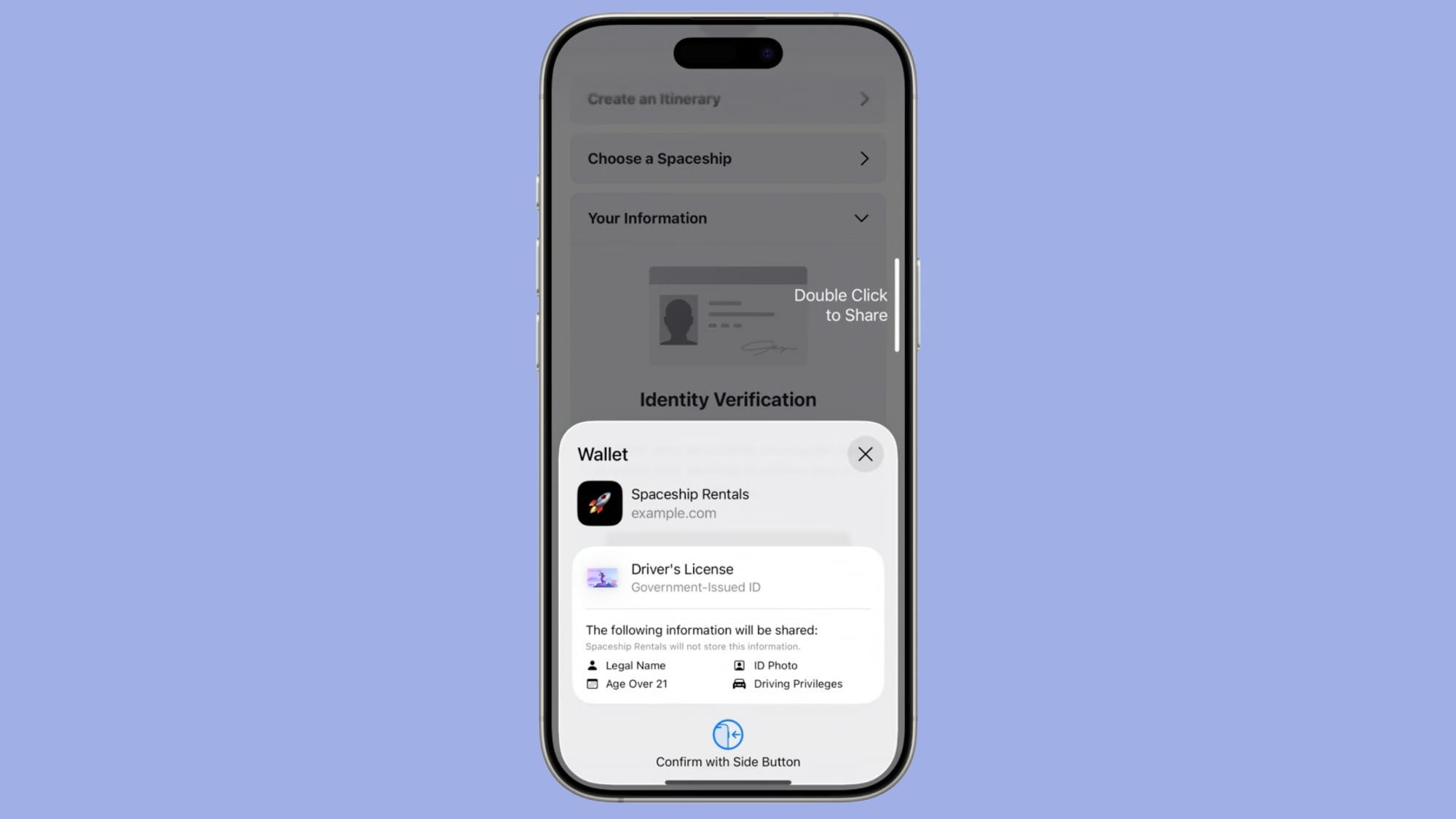
Apple is adding a "Verify with Wallet on the Web" option in iOS 26 that can use a state-issued license or Digital ID to verify age and identity in a private and secure way. This is already an option in apps, but Apple is expanding it to the web through support for the W3C Digital Credentials API and the FIDO CTAP protocol.

Right now, purchasing alcohol, renting a car, or similar activities online can require users to upload a picture of their ID, but Apple's new system will replace that. Websites will be able to request digital credentials like name and date of birth without receiving unnecessary information. End users will be informed of how the data will be used, and whether it will be stored by the website asking for identity verification.
Apple's new web-based ID verification feature will work seamlessly in Safari on iPhone, iPad, and Mac, but it will also work with other browser apps and other operating systems that implement support. You can use your iPhone to scan a QR code in any browser on any system to share digital ID information with a website using Face ID authentication.
Verify with Wallet on the web works with state-issued IDs and licenses, and passports added through the new iOS 26 Digital ID feature could support online verification. Apple is also adding support for third-party apps that store licenses. Some states have digital ID systems that do not integrate with Apple Wallet, but licenses stored in these apps will still be able to be used for identity and age verification on the web. When initiating the verification process on a website, iPhone users will be able to select the Wallet app or a third-party app.
The process is end-to-end encrypted, so other parties are not able to read identity data, including browsers and operating systems. IDs are cryptographically signed, preventing the use of fake IDs.
Apple says that the first websites that will support the Verify with Wallet on the Web feature include Chime, Turo, Uber Eats, and U.S. Bank. The Arizona MVD, Georgia DDS, and Maryland MVA will add support for their digital ID apps.
The web verification process for IDs will launch this fall when iOS 26 debuts.
Article Link: Apple Expands Digital ID Support to Web Browsers in iOS 26


